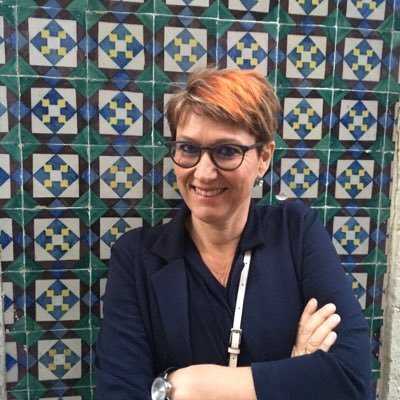
As cancer nurses, we truly make a difference to people’s lives. Nursing is the most trusted profession in many countries and I can understand why. We interact in so many ways with patients, their families and friends and support them through all the difficulties they experience related to cancer. As a young nursing student in the early 1980s, I first came in contact with cancer care during clinical education at an oncology ward. I have been working in cancer care ever since and still find it just as rewarding and important as when I started out. In my current positions, both at my day job at the Regional Cancer Center in Stockholm and as President of the European Oncology Nursing Society, I feel that I can now make a broader impact to this important field and its standing in our profession.
Regarding my presidency, over the next two years, one of the biggest task will be to complete and evaluate the RECaN project. Recognising European Cancer Nursing (RECaN) is a major project led by the European Oncology Nursing Society (EONS) and supported by the European CanCer Organisation (ECCO). The overall goal is to increase recognition of the value and contribution of oncology nursing across Europe – focusing on expert cancer nursing skills, research, education, clinical leadership, strategy and management roles, advocacy and policy development – and its major impact on the experiences and outcomes of cancer disease, treatment and recovery. The project is now in the second of three phases. This second phase has seen the collection of data from Estonia, Germany, the UK and NL and the release of this information will form part of ECND 2018. We have learned a lot: there are both great similarities but also unexpected differences between these four countries regarding cancer nurses’ education, working conditions and roles in their teams, and that these factors seriously impact patient outcomes including safety. The plan is to present the data from both Phase 1 and 2 to our members at the EONS 11 conference in Munich in October. I also want to put more focus on cancer nurses’ role in cancer prevention/risk reduction: WHO states that around 30% of cancer-related deaths are caused by the five leading behavioral and dietary risks: high body mass index, low fruit and vegetable intake, lack of physical activity, tobacco use and alcohol consumption. Here cancer nurses’ competences could be used in a better way and nurse-led support related to lifestyle change is an effective strategy both in primary and secondary cancer prevention. I also want to continue and expand the collaboration that we have already started with other organisations. I truly believe in multi-professional teamwork, both clinically, in research and on an organisational level. If we work together we will achieve so much more and, to be honest, the competition we sometimes see between different professional groups is so tiresome and ineffective. We need to continue our advocacy work to get an even stronger voice for European cancer nurses. We have already shown that we can arrange very successful conferences that attract many delegates: in just the last few years we can look back on major successes in Dublin, Amsterdam and Ede. As I said, in October 2018, we will do it again, in Munich. I can promise another successful event with an excellent three-day cancer nursing programme. This collaboration with ESMO offers unique opportunities for the nurses attending as they will be able to benefit from all the sessions offered in this world-leading cancer conference. We are also happy to offer nurses a flat registration rate, 340 EUR.
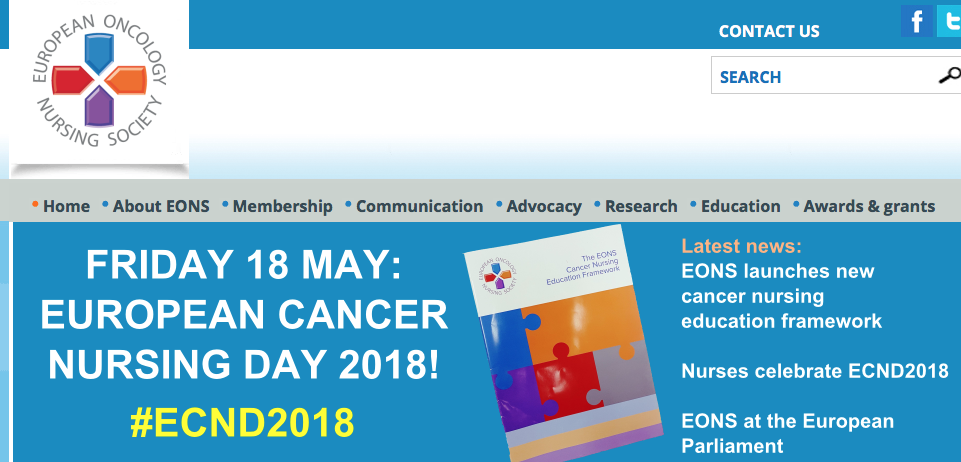 In the field of nursing training,we published a new edition of the Cancer Nursing Education Framework. It became apparent when we started the revision process of the previous edition from 2013, that cancer nurses’ roles have developed recently. The previous edition didn’t include much on leadership, communication, safety or advanced cancer nursing roles. The new revised version also includes a stronger focus on health promotion and lifestyle issues, and also on new cancer treatment options such as targeted therapies and immunotherapy. It is a challenge to develop an education framework that will fit the current diversity in cancer nursing across Europe, but we truly believe that this revised edition will focus on the unique competences that this workforce has, helpraise the recognition of cancer nurses and underline how important it is to let them use their full potential. EONS recently ran a highly successful Leadership Summit in the Netherlands. Its aim was to help cancer nurses understand that leadership is important right along the career pathway, and to help them develop these important skills.Because the rating from the delegates were excellent, we have included leadership as one of the topics for the upcoming Conference in Munich. I think the summit managed to put a greater focus on the importance of leadership in cancer nursing. Linked to that, when someone asked me about who and what helped me to become a leader it’s difficult to answer. But I think that I always have had a great engagement in my work and kept a strong focus on the patients and their families but also on supporting and standing behind my team as much as possible. You need to trust people to do their best, to listen to and support your team members. When you do, miracles can happen, in my experience. You need to be there and take on the responsibility in difficult times and to let your team take the credit for great work. I have great respect for the clinical nurses and think that my role as a manager is to stand behind and support, rather than to be superior. I try to avoid hierarchical organisational models and instead see the clinical nurses and other team members as frontline staff, while leaders, HR, finance staff etc. should support from behind.
In the field of nursing training,we published a new edition of the Cancer Nursing Education Framework. It became apparent when we started the revision process of the previous edition from 2013, that cancer nurses’ roles have developed recently. The previous edition didn’t include much on leadership, communication, safety or advanced cancer nursing roles. The new revised version also includes a stronger focus on health promotion and lifestyle issues, and also on new cancer treatment options such as targeted therapies and immunotherapy. It is a challenge to develop an education framework that will fit the current diversity in cancer nursing across Europe, but we truly believe that this revised edition will focus on the unique competences that this workforce has, helpraise the recognition of cancer nurses and underline how important it is to let them use their full potential. EONS recently ran a highly successful Leadership Summit in the Netherlands. Its aim was to help cancer nurses understand that leadership is important right along the career pathway, and to help them develop these important skills.Because the rating from the delegates were excellent, we have included leadership as one of the topics for the upcoming Conference in Munich. I think the summit managed to put a greater focus on the importance of leadership in cancer nursing. Linked to that, when someone asked me about who and what helped me to become a leader it’s difficult to answer. But I think that I always have had a great engagement in my work and kept a strong focus on the patients and their families but also on supporting and standing behind my team as much as possible. You need to trust people to do their best, to listen to and support your team members. When you do, miracles can happen, in my experience. You need to be there and take on the responsibility in difficult times and to let your team take the credit for great work. I have great respect for the clinical nurses and think that my role as a manager is to stand behind and support, rather than to be superior. I try to avoid hierarchical organisational models and instead see the clinical nurses and other team members as frontline staff, while leaders, HR, finance staff etc. should support from behind.
Research is essential to enhancing the quality and delivery of evidence-based cancer care for patients and their families across Europe. We support a range of research initiatives to ensure that the practice of European cancer nurses is informed by the most rigorous and up-to-date evidence available. Some research conducted by cancer nurses make a real difference to nursing practice and the patient experience. There is strong evidence for benefits in the areas of nurse-led psychosocial support, symptom-management, treatment follow-up and self-management to name a few. Sometimes, someone in the medical profession claims that research is not the domain of nurses and that they should focus only on patient care duties.I wish that we didn’t have to deal with ancient attitudes like this: recently, someone claimed in a newspaper article that academic education for nurses stopped us from being compassionate. This is just one example and I am sure that many of us recognise similar statements from our workplaces. I was, for instance, told in a meeting myself the other day that I should stop promoting nursing so hard. Generally speaking, we need to continue to describe how important our work is for people affected by cancer and not lower ourselves to the level of ignorant people that still want to play the old “Doctor-Nurse game”. This includes looking at ourselves and how we behave. We need to go from silence to voice, stop apologising for ourselves and saying that “we are only nurses”. We need to take responsibility for our competence. Instead of telling a patient that you don’t know the answer to a medical question and referring to “the doctor” you can respond that you want to consult a colleague and then get back to the patients. That’s being professional and showing patients that we work together in the cancer care team. We also need to speak up every time we know or suspect that something might be wrong in a clinical situation. That might seem obvious, but in fact a lot of serious errors have happened when nurses or other professionals have noticed something but haven’t said anything as they don’t want to dare to question a physician or senior authority. We can also make sure that we always show respect to other groups, for instance nurse assistants, porters or other members of staff that might get even less recognition. In this way, as individuals, we will help ensure nursing is well respected in the multi-professional environment.
EONS is keenly aware of the challenges that young cancer nurses (YCN) across Europe face and how difficult it can be working in oncology as a newly-qualified practitioner. EONS has set up a network of YCNs and opened a position on its Board to represent YCNs and ensure their views and needs are put front and centre. The young cancer nurses are facing many challenges. Even if EONS offers many opportunities in the form of educational events, awards, grants and fellowships, many of our young colleagues won’t apply since they can’t get the required time off work (due to nursing shortages and other factors). This is a vicious circle: if young nurses don’t get any opportunities to develop and learn more, there is an even greater risk that they get burnt out or even leave the profession, making the nursing shortage even worse. We need to truly support our young colleagues if we want to have strong cancer care in the future. We have a lot to learn from them: it is not just the other way around, as we sometimes assume. So, to a young cancer nurse starting out today I would just give a simple advice: Engage in EONS’ YCN network – it’s open to all interested young cancer nurses. When this initiative started, we aimed for one YCN representing each country, but there is so great an interest that we decided to open the network to every cancer nurse under 35 years of age.
Cancer nursing has changed incredibly over the course of my career. Something has got better, something has stayed the same.Most things are so much better today compared with in the 1980s when I started as a nurse. First and foremost, the results from cancer treatments have remarkably improved. That goes for most cancer types and for most countries in Europe, which is fantastic. We have so much more knowledge today on cancer risk reduction. Cancer nurses have a stronger role and better career possibilities in most countries, even if we still have a long way to go. On the negative side, I think that many nurses work under tougher circumstances and working conditions today. It may vary between different countries and organisations but the nursing shortages and the lack of specialist training have even more impact today, as the newer treatments are often complex and extremely potent. Indeed. the main challenges in the current state of cancer nursing are the differences in education, opportunities and roles across Europe. These differences negatively contribute to the inequalities we face in European cancer care. My dream for cancer nursing is that we start to see a strong reduction in cancer incidence and prevalence, and that this is helped by cancer nursing being recognised as a specialty across Europe. I also dream that, in ten years’ time, all countries will have clear career pathways for cancer nurses and that advanced nursing roles will be established in all countries. In this way, this unique competence could be used to its full potential.
Cancer nursing can be a highly rewarding but also a very stressful and emotionally draining job. EONS reminds its members that they must maintain a good work/life balance to avoid burnout and compassion fatigue.I am not always brilliant at this but I truly recognise its importance and think I am getting better. To look after yourself, to stay healthy is essential if you are to cope with such a demanding job as being a cancer nurse. We know that we as nurses often ignore our own health, which is worrying. I try to make one of the days at the weekend completely free from work. I also have a mentor that I meet regularly, which is very helpful. Those who know me well, are painfully aware that I am a grandmother. I talk constantly about my wonderful granddaughter (Holly, 4 years old). Spending time with her is true mindfulness for me. I just forget about everything else. I have also learned through the years that all the work you do doesn’t have to be perfect. I try to avoid to getting stuck with details as it is most often the bigger picture that counts.



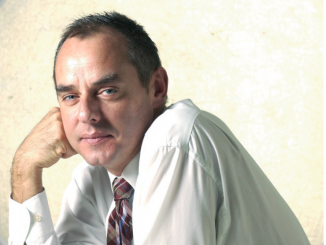
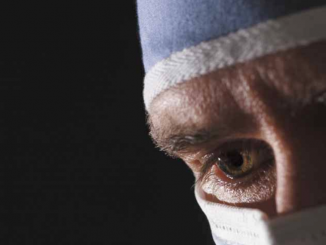
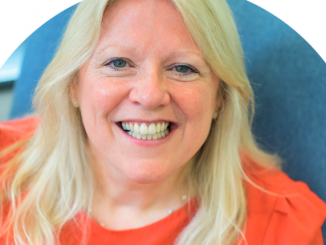
Leave a Reply